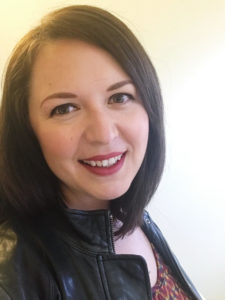Challenge
To authentically expand audience reach
Plan
Adopt a pay-as-you-can subscription model
What worked
Subscriber base has grown exponentially
What needs work
The online ticket-booking system
What’s next
Making the model more efficient, and tailoring programming to the expanded subscriber base
Amid the dense arts scene of California’s Bay Area, Ubuntu Theater Project has proudly distinguished itself with a mission statement of being “radically inclusive.” Founded in 2012 as a handful of summer theatre festivals, Ubuntu—named after a Zulu proverb that means “I am because we are”—now programs year-round shows at various venues throughout Oakland, Calif., one of America’s most diverse cities. They often stage American classics with predominantly casts of color, a majority of whom are Oakland natives. Though a seat at each performance costs between $15 and $45, the company has regularly drawn a percentage of patrons from low-income communities through pay-as-you-can tickets sold at the door, and has offset those costs with a bucket donation ask after the curtain call.
But all that wasn’t inclusive—or radical—enough for Ubuntu. So last summer, the theatre adopted a pay-as-you-can subscription model, guaranteeing tickets to its seven shows for a single amount named by the ticketholder. It’s an idea they’d mulled over the years; they had previously offered discounted subscription rates in a variety of ways. But given the theme of their then-upcoming season—“A house divided against itself cannot stand,” a biblical metaphor cited by president Abraham Lincoln at the dawn of the Civil War—it seemed as good a time as any to finally try it.

“There was a financial risk—we had no idea what people were gonna pay,” concedes Simone Finney, the organization’s marketing director. “But this is what we’re about as a company, and if we were gonna fail, we should fail on things that are ideologically exciting.” True, she notes, the theatre already offers pay-as-you-can (PAYC) tickets at every door, but “this is a way to invite someone into a continued conversation, rather than just an affordable experience of one show. It’s not just transactional; it’s saying, ‘I want to be part of this community.’”
Prior to the PAYC subscription initiative, season subscriptions sold for $120, and “priority” subscriptions—for patrons who wanted to give more—for $200. The theatre also offered generous $25 subscription packages for artists and folks under the age of 25. So the potential for losses wasn’t extreme for the new initiative.
Still, it was a huge gamble—and it’s paid off surprisingly well, both in terms of cash flow and feedback. Ubuntu’s subscriber base grew from just 25 devoted patrons to around 300 and counting. The company still has two shows left in their season and can’t seem to stop people from signing up. Subscribers under the new model pay a collective average of $17 per ticket per show, just higher than the company’s initially budgeted $15. That’s because, while some have subscribed for only one dollar (“We’re happy to have them!” effuses Finney), others have paid up to $600. “We go, ‘Is that right? Did they mean to add both of those zeroes?’” she says with a laugh. Finney attributes the generosity of their higher-end subscribers to word of mouth, since her marketing budget didn’t suddenly multiply over the past season. “We’re trying to do a lot on not a lot,” she admits.
Leigh Rondon-Davis, Ubuntu’s executive associate, is overwhelmed by the audience reaction. “We want to make art for our home, and we have a clear ethos that a lot of people are excited about, particularly in our liberal Bay Area community,” she says. “How can we make the room you’re in for the night more accurately reflect the Bay Area? A lot of the feedback we’ve gotten is, ‘Thank you, I can finally afford to see theatre.’ We were really surprised and excited—it’s balanced out in a way we’re really delighted with.”

As with any first-time initiative, the program had its share of hitches. Since each subscription comes with perks like free ticket exchanges and guaranteed seating for sold-out performances, the theatre occasionally finds itself entertaining more no-shows than usual. Also, their online ticketing platform, Vendini, doesn’t allow buyers to input their own prices; the current two-step work-around involves making a donation via the Square Cash app, waiting for a manually sent email from Rondon-Davis, and then booking tickets with a coupon code.
“People are learning that we’re a community organization, we’re scrappy, there’s only two of us who are full-time staff and everyone else is part-time and wearing a lot of hats—bear with us and come along for this ride,” she says.
Ideal improvements for next season include a more efficient process for securing subscriber tickets online, plus automated reminders about already booked tickets to lessen the likelihood of exchanges and no-shows. The company’s grants team is also looking into foundational support to underwrite a portion of their subscriptions. What’s more, if their expanded subscriber base returns for next season, the organization hopes to offer shows that reflect their audience even more.
“Our bread and butter for a while was classics or established works, and humanitarian world premieres of new works,” says Rondon-Davis. “Now, edgier works that speak to young people, young women, and queer people—we’re seeing more of those in consideration for our season and reading series.”
This is especially important, given their Bay Area locale, adds Finney: “People don’t just come to things because they’re free—there are so many free things to do on any given day in the Bay Area. You never get a pass on anything; you still want to earn people’s time, interest, and enthusiasm.”
Down the line, Ubuntu hopes to move into a permanent performance space in Oakland, and help pass the torch for other theatres to take on this subscription model. While other theatre companies might be hesitant to make this drastic leap, no one needs to jump into the deep end immediately. Instead Finney and Rondon-Davis suggest following in Ubuntu’s footsteps and experimenting with PAYC tickets at the door for each performance. Most important, they suggest, talk to your audiences to identify what their primary challenges are when it comes to seeing theatre.
“It’s not always cost—it can be location, the type of work, not having people to go with, not feeling welcome in a theatre space,” notes Finney. “These are conversations we will continue to have. Lowering our subscription costs to accommodate everyone, no matter who you are—that felt like it would make a difference with our audiences. This hasn’t made us take a financial hit and has been, in fact, very beneficial to us. I hope that makes more companies consider accessible pricing, not just as a sacrifice you make, but something that could be a viable part in the life of a company.”
Ashley Lee is a Los Angeles-based entertainment reporter and critic who specializes in film and theatre coverage.


